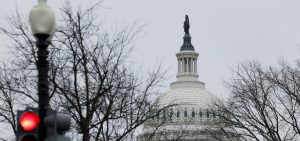News
U.S. hits its debt limit and now risks defaulting on its bills
By: Rafael Nam | NPR
Posted on:
WASHINGTON, D.C. (NPR) — Treasury Secretary Janet Yellen, in a letter to Congress on Thursday, said the U.S. has reached its debt limit, and has begun resorting to “extraordinary measures” so the government can continue paying its bills.

The special measures being undertaken, including suspending investments in the Civil Service Retirement Fund, are essentially accounting maneuvers to avoid breaching the country’s borrowing limit.
The U.S. economy runs a deficit, hence it needs to borrow money to pay its bills. Currently the U.S. can only borrow up to about $31.4 trillion.
Raising the debt limit used to be a routine exercise for Congress but it has become increasingly fraught. A potentially huge political fight looms this year as some House Republicans have vowed to block any increase in the debt limit in order to extract spending cuts.
That’s a big concern given that a U.S. debt default would have potentially huge consequences for the economy and markets, raising doubt about the country’s creditworthiness.
Analysts had previously estimated the debt limit could be reached as early as June with the measures Treasury has taken, but there’s considerable uncertainty of exactly when that will happen, as Yellen herself noted on Thursday.
“The period of time that extraordinary measures may last is subject to considerable uncertainty,” Yellen wrote. “I respectfully urge Congress to act promptly to protect the full faith and credit of the United States.”
The U.S. almost defaulted on its debt in 2011 when political brinkmanship between House Republicans and then-President Obama sparked a market sell off and the first-ever credit rating downgrade for the U.S.
Republicans, under new House Speaker Kevin McCarthy, currently hold a small majority in the House but there are deep divisions in the party. McCarthy was elected Speaker after 15 rounds of voting.
The White House has said President Biden is not interested in negotiating, and has chastised those who want to use the debt ceiling to extract gains.
9(MDU1ODUxOTA3MDE2MDQwNjY2NjEyM2Q3ZA000))

